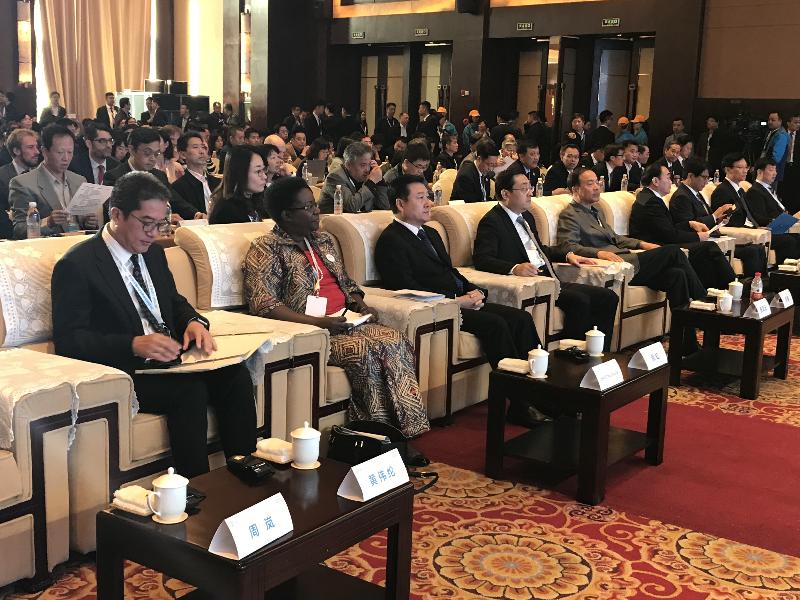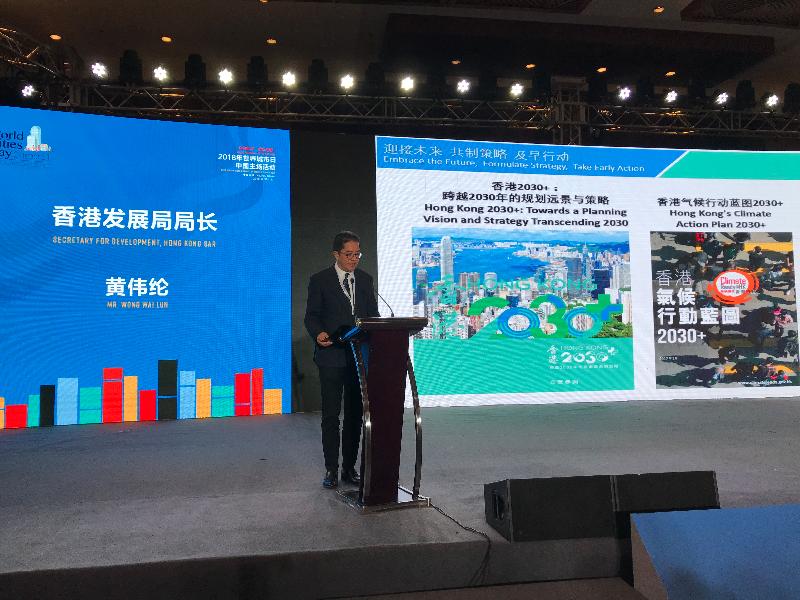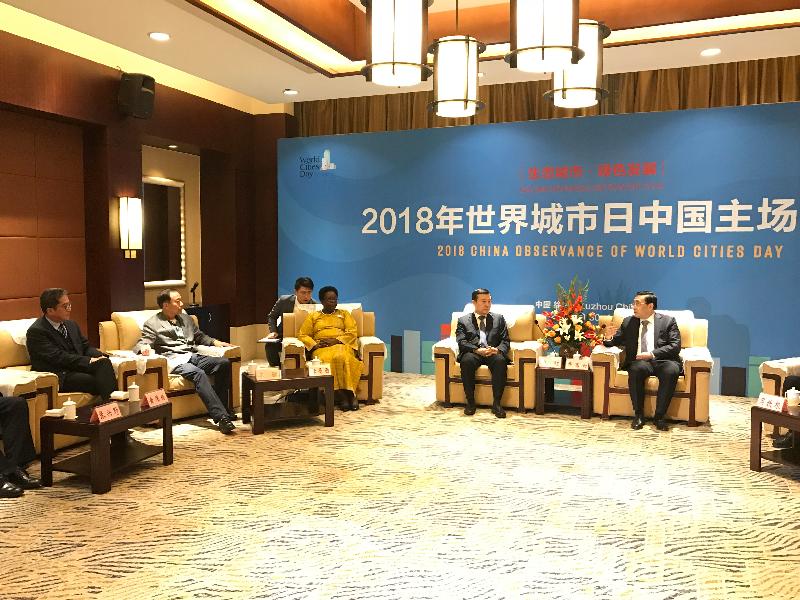Following is a question by Hon Leung Yiu-chung and a written reply by the Secretary for Transport and Housing, Mr Frank Chan Fan, in the Legislative Council today (October 31):
Question:
It is learnt that there are currently more than 150 000 deaf/hard-of-hearing persons in Hong Kong, many of whom are residing in public housing estates. As all public housing estates in Hong Kong are currently not installed with visual fire alarm systems, there is a lack of protection for the safety of such persons. It has been reported that the Housing Department (HD) launched a trial scheme in August last year to install fire alarm flashing lights in units of public housing estates, but HD has so far not given an account of the progress. In this connection, will the Government inform this Council:
(1) of the details and progress of the trial scheme as well as the manpower involved; whether HD has consulted the deaf/hard-of-hearing persons and concern groups in respect of the implementation of the trial scheme; if so, of the details; if not, the reasons for that;
(2) whether the deaf/hard-of-hearing public housing tenants may currently apply for fire alarm flashing lights to be installed by HD in their units; if so,
(i) of the respective numbers of applications received, approved and rejected by HD since last year;
(ii) if there were rejected applications, of the reasons for the
rejection; whether the tenants concerned may lodge an appeal; if so, of the mechanism involved;
(iii) of the number of cases to-date in which the works for installation of fire alarm flashing lights have been completed;
(iv) whether HD has provided training and guidelines for the frontline staff on handling such applications, and distributed application forms to the tenants concerned; if so, of the details; if not, whether HD will do so as soon as possible; and
(3) whether it will consider making amendments to the Buildings Ordinance (Cap. 123) and the Fire Services Ordinance (Cap. 95) to require that (i) all newly constructed public and private residential buildings must be installed with a visual fire alarm system, and that (ii) existing residential buildings must be retrofitted with such a system within a specified period of time; if so, of the details and the timetable; if not, the reasons for that?
Reply:
President,
Having consulted the Development Bureau and the Security Bureau, I set out the consolidated reply to various parts of the question raised by the Hon Leung Yiu-chung as follows:
The Building (Planning) Regulations (B(P)R) prescribes design requirements on barrier-free access and facilities to ensure that suitable barrier-free access and facilities are provided in private buildings to meet the needs of persons with disabilities. At the same time, although the related provisions do not apply to buildings built before the commencement date of the B(P)R (viz. August 1985), any alterations or additions to such buildings are required to comply with the relevant regulations.
In order to facilitate registered building professionals to comply with the aforesaid requirements, the Buildings Department (BD) has issued the Design Manual: Barrier Free Access (the Design Manual) which has set out the mandatory statutory design requirements as well as recommendations for best practice design. Upon receipt of general building plans submitted by registered building professionals, BD shall vet the provision of barrier free facilities and access in the buildings for persons with disabilities in accordance with the details set out in the Design Manual. The Fire Services Department (FSD) will also ensure that all fire service installations and equipment comply with the requirements set out in the "Code of Practice for Minimum Fire Service Installation and Equipment" issued by FSD, having regard to the intended use of the buildings prescribed under the Buildings Ordinance.
The Design Manual has also specified the scope of application of visual fire alarm system (VFA). Comprising of various sectors, including rehabilitation, building and academia, the Technical Committee on the Design Manual had discussion on the scope of application of VFA. There were no views expressed then to mandate each private residential unit to be installed with such alarm system. However, in the light of the recommendations made by the Technical Committee, BD revised the Design Manual in April 2017 to recommend that apart from mandating the installation of VFA at some of the areas at the various uses of buildings listed in the Design Manual, registered building professionals should adopt new best practice design during the general building plans submission by providing VFA in situations where person with hearing impairment has to work alone (except for areas designed for domestic use).
Though the Design Manual does not mandate the installation of VFA in a residential unit, the Government welcomes the installation of such alarm system according to the actual needs of the owner.
At the same time, the Hong Kong Housing Authority (HA) has all along been providing appropriate assistance to tenants with hearing impairment according to actual circumstances. For instance, relevant households may opt for special notification service provided by HA and authorise estate office staff to notify the designated contact person(s) in case of suspension of fresh water supply/electricity supply/lift service or in emergency (e.g. fire incident); and to transfer their relevant information to other government departments, such as the Police, FSD, etc. for communication purposes. In case of emergency, such as fire incident, estate office staff may, under safe situation, notify persons with hearing impairment to leave their public rental housing (PRH) units, before the Police or FSD personnel arrives at the scene. Relevant households may also apply to HA for free installations of flashing-light doorbells to facilitate their answering of door calls.
HA has also been strictly complying with the regulations and requirements of the relevant legislations in installing fire protection systems in its PRH estates. Under the prevailing legislation, individual units in residential buildings (including PRH units) are not required to be equipped with VFA. Installing VFA in residential units would require proper handling of certain statutory and technical issues. For example, the system must be connected to the communal fire service installations so as to enable the simultaneous actuation of fire alarm bells in the event of a fire. In fact, as we understand, it is not common for VFA to be installed in individual units in residential buildings.
At present, HA does not have a policy on installing VFA in PRH units. Nevertheless, with a view to further assisting households with hearing impaired persons, HA commenced a feasibility study for the installation of VFA in August 2017. FSD's consent to the relevant proposal was obtained in November 2017. Thereafter, HA submitted the preliminary design drawings and detailed fire service installation drawings to FSD in December 2017 and April 2018 respectively, in the pursuit of carrying out trial installation of VFA in a PRH unit with hearing impaired tenant. FSD's consent to the installation works was obtained in July 2018. HA installed the VFA on August 20, 2018 and, on the same date, held a meeting with the deaf/hearing-impaired concern group assisting the household; as well as several other households with hearing impaired members residing in other PRH estates, to gauge their opinions. In addition, HA held a meeting with another deaf/hearing-impaired concern group on September 3, 2018 to gather their views and explain to them about the VFA and the progress of the trial.
HA will closely monitor the performance of the VFA and observe if changes in environment conditions, such as temperature and humidity, will affect its operation. HA will also maintain communication with the relevant household to understand and assess the effectiveness of the installation. The review over the trial installation is expected to be completed by mid-2019.
Up to now, HA has received enquiries from six households with hearing impaired members requesting for the installation of VFA. As the system is still under trial, its performance and effectiveness are to be monitored and reviewed. HA will determine the way forward upon the completion of the review.


